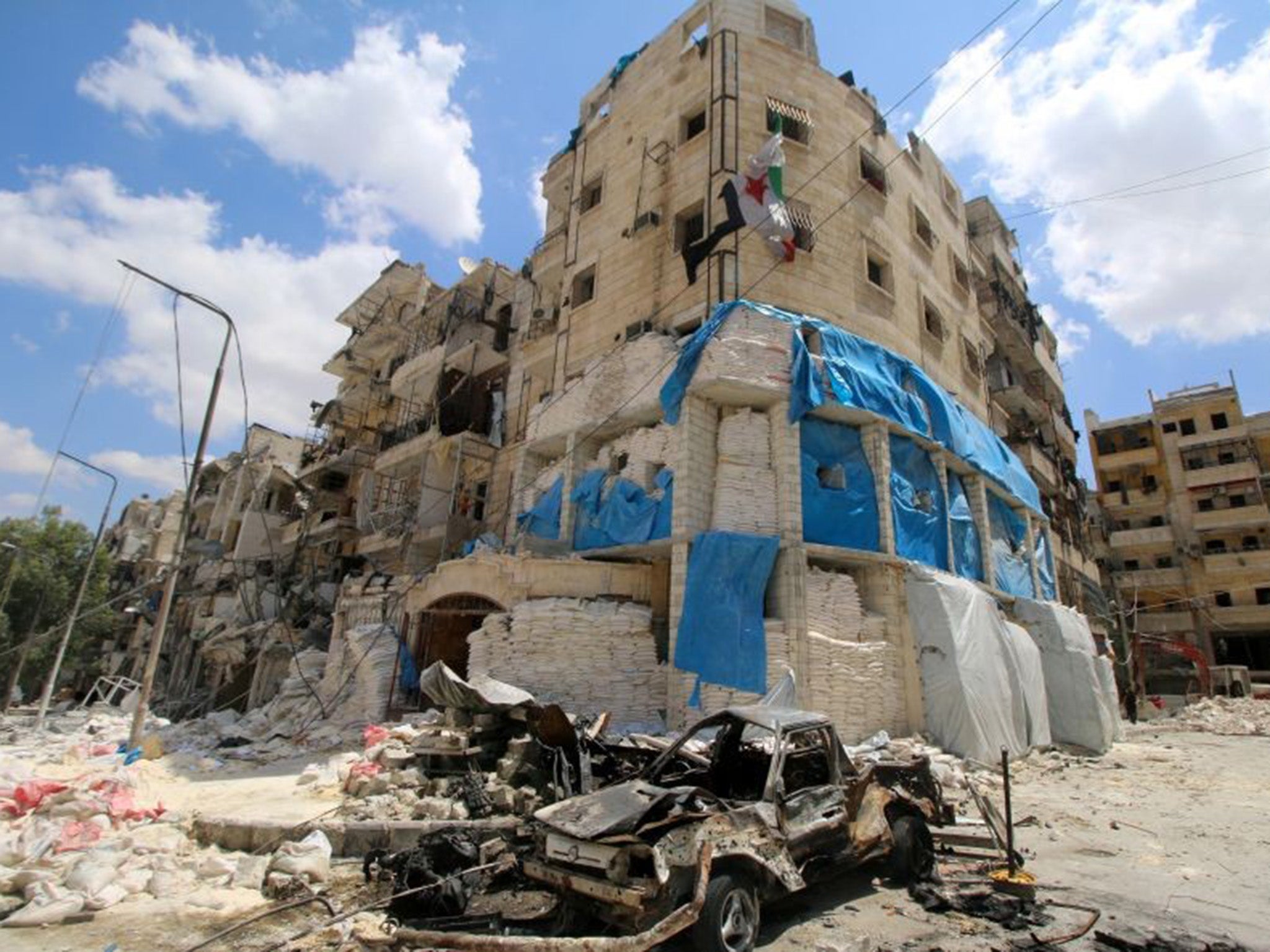UN Security Council says military strikes on hospitals, patients and medical personnel must cease now
Four permanent members, Britain, the US, Russia and France, reminded of their part in strikes on medical facilities

The United Nations Security Council has unanimously approved a resolution deploring the escalating numbers of deliberate attacks against medical facilities and personnel as well as the wounded in war zones and calling for those responsible to be brought to justice.
The vote, taken in a sometimes emotional session in New York, comes a week after the destruction of a hospital in Aleppo, Syria, in an air strike believed to have been carried out by Syrian government forces that killed 55 people and deprived the rebel-controlled city of its last functioning medical centre.
It also followed the Pentagon’s decision this week to bring disciplinary charges against American servicemen involved in the strike against a clinic in Kunduz, Afghanistan, operated by Médecins Sans Frontières, MSF, last year that took the lives of 42 people. The “tragic strike” was nonetheless an accident, the Pentagon said.
Meanwhile, another hospital in a government-controlled area of Aleppo was destroyed yesterday in shelling reportedly by Islamist rebels killing at least 19 civilians. The government-controlled Syrian Arab News Agency said rebels including the al-Qaeda affiliated Jabhat al-Nusra fired shells at the Al-Dabit Hospital amid an assault on regime-controlled parts of Aleppo.
The resolution, sponsored by New Zealand alongside Spain, Egypt, Japan and Uruguay, reasserted that deliberate attacks on medical personnel or patients constitute a war crime. Guest speakers at the Council session included Peter Maurer President of the International Committee of the Red Cross, ICRC, and Dr. Joanne Liu, who is International President of Medecins San Frontieres, MSF.
“Medicine must not be a deadly occupation,” Dr Liu told the chamber. “Patients must not be slaughtered in their beds.” She lamented what she called “an epidemic of attacks” on protected medical targets, declaring that ”hospitals and patients have been dragged onto the battlefield.“
Bringing an electric hush to the proceedings, Dr Lui noted that four of the five permanent members of the Council - the United States, Britain, Russia and France - had been involved in coalitions, which ”have, to varying degrees, been associated with coalitions responsible for attacks on health structures over the last year.“ She cited, “the NATO-led coalition in Afghanistan, the Saudi-led coalition in Yemen, the Russia-backed Syrian-led coalition.”
Separately, MSF on Tuesday expressed the hope that the Aleppo hospital, which had also been supporting, will partially re-open in two weeks. The group said its Emergency Room and laboratory as well as vital drugs and equipment had been destroyed in last Wednesday’s strikes. Among the dead, it added, were “six staff from the hospital, including one of the last pediatricians in Aleppo, one dentist, two nurses, a technician and a guard. “
“All too often, attacks on health facilities and medical workers are not just isolated or incidental battlefield fallout, but rather the intended objective of the combatants,” the UN Secretary General, Ban Ki-Moon, told members of the Security Council after its vote. “This is shameful and inexcusable.”
While the Aleppo attack helped spur the resolution’s passage, speakers in the chamber noted not only that the numbers of strikes against medical targets have been rising for some time but it is a phenomenon that is seen in places beyond Syria and Afghanistan but also in Iraq, Yemen, South Sudan, Central African Republic amongst other conflict areas.
Mr Maurer cited an ICRC study that had identified 2,400 attacks against patients, health personnel, medical facilities, ambulances and other transport that had taken place in 11 conflict-affected countries in the space of just three years. “That's more than two attacks per day, every day, for three years,” he told the council members adding that man of them clearly constituted “outright violations of international humanitarian law”.
“We need to shine a light and make clear the international community's utter rejection of such practices,“ New Zealand's UN envoy Gerard van Bohemen, commented ahead of the Tuesday vote. ”Perpetrators of these attacks need to be held to account.”
The resolution demands that all parties to armed conflicts facilitate “safe and unimpeded passage” for medical workers and condemns “the prevailing impunity” for attacks and abuses against medical staff and facilities and strongly urges governments to conduct independent investigations of all violations.
Join our commenting forum
Join thought-provoking conversations, follow other Independent readers and see their replies
Comments
Bookmark popover
Removed from bookmarks